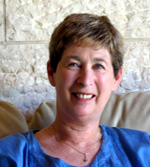|
By Dorothea Shefer-Vanson
 MEVASSERET ZION, Israel—One of the subscription concert series my husband and I attend regularly is given by the Jerusalem Academy of Music and Dance. The concerts are held in the imposing Wise auditorium situated on the Hebrew University’s Givat Ram campus, and focus on a different composer or school of music each year. During the academic year the audience is treated to brief lectures by members of the faculty about the chosen composer as well as to a performance of some of his music, usually by a soloist or a chamber ensemble. Once again, it is mainly faculty members who are the performers. MEVASSERET ZION, Israel—One of the subscription concert series my husband and I attend regularly is given by the Jerusalem Academy of Music and Dance. The concerts are held in the imposing Wise auditorium situated on the Hebrew University’s Givat Ram campus, and focus on a different composer or school of music each year. During the academic year the audience is treated to brief lectures by members of the faculty about the chosen composer as well as to a performance of some of his music, usually by a soloist or a chamber ensemble. Once again, it is mainly faculty members who are the performers.
Over the course of the years we have been treated to series about Schubert, Mozart, Russian composers, and the French school of the 19th century. This year, under the heading ‘The Titan,’ the subject was Beethoven. Although fifteen concerts were given in the course of a nine-month period, it has been possible merely to touch upon a small portion of Beethoven’s mammoth oeuvre.
At one of the last concerts the Academy’s student orchestra, conducted by Maestro Mendi Rodan, played Beethoven’s fourth symphony and the Emperor piano concerto, with Professor Assaf Zohar as soloist,. The young musicians played confidently under Mendi Rodan’s baton, and the entire concert was an uplifting experience.
Just a few weeks later, in May, we were stunned to hear that Maestro Rodan had died quite suddenly at the age of 80. Since immigrating to Israel from Romania in 1960 he had conducted all Israel’s major orchestras as well as several abroad, headed the Jerusalem Academy of Music and Dance and taught conducting there for many years. He had also been awarded the Israel Prize for his outstanding work in the field of music and music education.
Go to the top of next column
|
|
A few weeks later there was a suspicious lack of activity as we approached the hall where we thought the last concert in the series was to be held. In fact, the place was deserted except for a lady who had also come for the concert. It soon became obvious that there was not going to be any concert there that evening. Nonplussed, the three of us decided to walk to the nearby Music Academy to find out what had happened.
On the path we met a gentleman who informed us that all the Academy faculty were attending a concert in memory of Mendi Rodan, and that it was highly unlikely that two Academy concerts would be held simultaneously. We decided to investigate further, and soon found ourselves inside a packed hall just as a chamber ensemble was taking its place on the stage. There was no applause at the end of the movement from a Debussy trio which they played, and almost immediately Chayuta Dvir, a well-known radio announcer and producer, stepped up to the podium to introduce the next speaker.
Throughout the following two hours members of the faculty came up on stage, spoke in affectionate and reverential terms about Maestro Rodan and played a movement from a sonata or a passage of music in his memory. Some of them found it difficult to speak, so overcome with emotion were they, reminding me that artists’ emotions are often nearer the surface than those of other people.
Chayuta Dvir gave her own somewhat humorous recollection of a radio broadcast from the north of Israel during the first Lebanon War, when Mendi Rodan had conducted for troops and time was running short before the scheduled news broadcast.
Later we found out that we had missed the final subscription concert, which had been held the previous evening in Tel Aviv. But we felt that we had been more than compensated.
|

